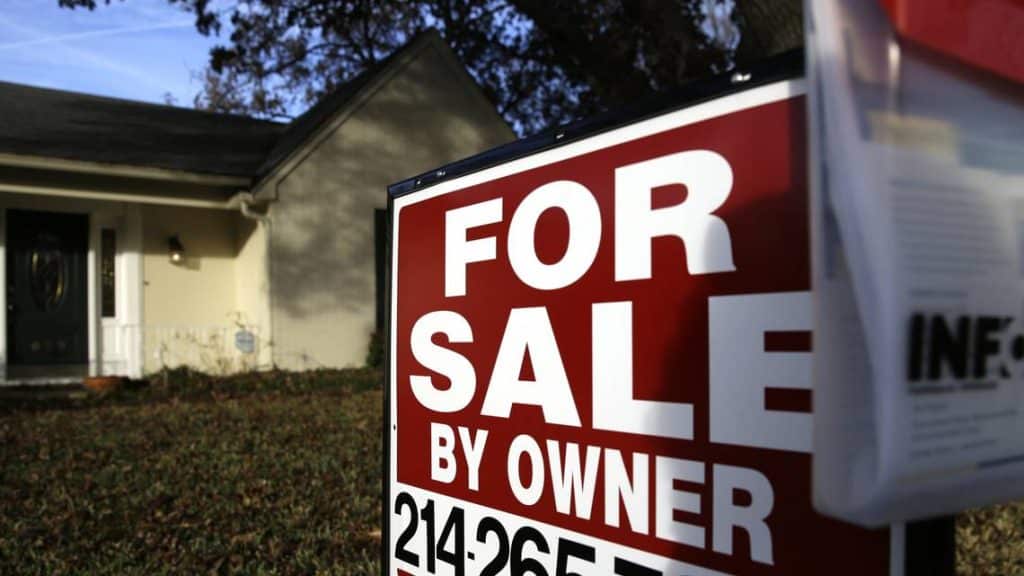Losing a loved one is hard, and figuring out what to do with their house can add to the stress. Many people wonder how soon they must sell the home after someone dies.
One important fact to know is that selling a house after death involves a process called probate, which varies by state but generally takes several months to over a year.
[gravityform id=”1″ title=”true”]
In this article, we’ll guide you through understanding this process, explain who’s involved and what steps need to be taken, as well as give advice on timelines and considerations for executors and heirs.
We aim to make this difficult time a bit easier for you.
Stay with us for helpful insights.
Key Takeaways
- Probate is a legal step needed to sell a house after someone passes away. It can take months or even more than a year, depending on the state.
- The executor plays a big role. They manage the estate, including selling any real estate if needed, following the deceased’s wishes or state law.
- You need a death certificate and must do a title search before selling the home to avoid delays or legal issues.
- Selling options include going through an agent for traditional sale, finding cash buyers quickly, or handling the sale yourself (FSBO).
- Disagreements among heirs and other factors like market conditions and property condition can affect how fast you can sell.

Understanding the Process of Selling a House After Someone Dies
When selling a house after someone dies, it’s important to understand the probate process and the role of the executor.
The death certificate and title search also play crucial roles in this process.
What is probate?
Probate is a legal process that happens after someone dies. It makes sure the deceased’s estate, including their house and other assets, gets distributed correctly according to their will.
If there is no will, state laws decide who gets what. The probate process can vary by state but generally takes several months to a year or more.
First, the court appoints an executor or administrator for the estate if one isn’t named in the will.
This person manages everything from paying bills to distributing assets among heirs as per the deceased’s wishes or state law.
In Texas, like in many states, selling a house often requires going through probate so ownership can legally transfer to a new owner.
Court approval may be necessary before an executor can sell a house during probate. This ensures all debts are paid and rightful heirs receive their inheritance.
Selling property without going through probate might be possible under certain conditions; however, it’s critical for executors and heirs alike to understand their rights and responsibilities throughout this complex process.
[gravityform id=”1″ title=”true”]
Who is the executor and what is their role?
The executor is the person named in a will or appointed by the court to carry out the deceased’s wishes and manage their estate.
Their role involves handling financial matters, including paying debts and distributing assets to heirs as specified in the will.
The executor also has the responsibility of selling real estate owned by the deceased if it’s necessary to settle debts or distribute assets.
Through this process, they must ensure that all legal requirements are fulfilled and act in accordance with succession laws and property transfer regulations.
In Texas, an executor holds significant responsibilities such as managing financial affairs, ensuring debts are paid off, distributing assets according to the will’s instructions, and potentially selling real estate if required for settling obligations or inheritance distribution.

The importance of a death certificate and title search
To sell a house after someone dies, you must have a death certificate and conduct a title search.
The death certificate is crucial for proving the individual’s passing, while the title search ensures there are no outstanding issues with property ownership.
Without these documents, selling the house can face significant delays or legal complications.
The death certificate is essential in legally transferring ownership of the property following an individual’s passing.
Additionally, conducting a thorough title search ensures that there are no unresolved claims or issues affecting the property’s marketability and transfer to potential buyers.
[gravityform id=”1″ title=”true”]
Timeline for Selling a House After Someone Dies
When can the executor sell the house after someone dies? Selling a house in probate – how long does it typically take?
When can the executor sell the house?
The executor can sell the house before probate is closed. Probate can take anywhere from two months to a year, depending on various factors.
The process of selling the house should be completed before the end of probate, which determines the timeframe for executing this task.
It’s important to note that there is no fixed timeframe for selling a house as an executor, but ensuring it’s done before probate closes is crucial.
This step aims to facilitate the smooth transfer of property after death in Texas and streamline the estate settlement process.
How long does it typically take to sell a house in probate?
It usually takes several weeks or months to sell a house in probate. The process can vary depending on the estate’s complexity and the local probate laws, often lasting from two months to over a year before the sale is completed.
Factors such as property condition, market demand, and potential disagreements among heirs can also influence the timeline for selling a house in probate.
Typically, it should be sold before the end of probate when assets are distributed. In California, for instance, there may be specific timeframes for transferring property after death.

[gravityform id=”1″ title=”true”]
Factors that may affect the timeline
- The condition of the housing market in your area may influence how quickly the house sells.
- Estate taxes and outstanding debts against the property could delay the selling process.
- Legal challenges or disputes among heirs over the inheritance may prolong the timeline.
- If there are issues with the property title, such as unknown liens, it can slow down the selling process.
- The need for repairs or renovations before selling can extend the time it takes to sell the house.
- Delays in obtaining necessary paperwork like death certificates or probate court approval can impact the timeline.
- Finding a suitable buyer willing to purchase a house in probate could affect how long it takes to sell.
Considerations for Executors and Heirs
Do all heirs need to agree on selling the house?
Learn about handling inheritance disagreements, and tips for hiring an experienced agent.
Read more to navigate this process confidently.
Do all heirs have to agree to sell the house?
While not all heirs necessarily have to agree to sell a property after the owner’s death, it ultimately depends on the specific circumstances.
In some cases, one heir may be able to initiate the sale without unanimous agreement from others.
The decision may also hinge on whether the deceased person left a will or if there are multiple co-owners of the property.
Understanding state-specific laws and consulting with legal counsel can provide clarity on this matter and ensure that all involved parties comprehend their rights in the process.
In Texas, where inheritance laws govern such matters, it is crucial for heirs and executors to approach property sales after someone’s passing with an understanding of their individual responsibilities and rights.
Handling inheritance disagreements
Inheritance disagreements can arise between heirs when deciding to sell a deceased loved one’s house. Not all heirs have to agree to sell the property, based on specific circumstances and state laws.
Executors should try to communicate openly with heirs and seek reasonable solutions.
It’s crucial for executors and heirs to understand their rights and obligations regarding the sale of the property, taking into account relevant legal implications.
Bear in mind that disputes can prolong the selling process, impacting timelines and causing additional stress.
Seeking legal advice or even mediation may be necessary in complex situations where agreement seems unattainable.
Additional Real Estate Advice:
- Working With A Realtor To Sell Your House in San Antonio
- Tips For Selling Your House For Cash Quickly
- is Selling Your House as is a Good Idea
- How To Sell My House Fast For Cash in San Antonio
- is Now a Good Time to Sell a House
- Can You Sell a House With Termite Damage
- Moving Out of State Should I Rent or Sell My House
- is FSBO a Good Idea
- Can My Husband Sell Our Home Without Me
- Can You Sell a Property With a Lis Pendens
- Why Can’t I Sell My House
- Why is a Cash Offer Better When Selling a House
- Pros and Cons of Selling a House as is
- Can I Sell My House While in Foreclosure
- What is a Subject To Mortgage in Real Estate
[gravityform id=”1″ title=”true”]
- is it Illegal to Sell a House With Termites
- If I Sell My House Will I Lose My Food Stamps
- Sell House For Cash Pros and Cons
- is Selling Your Home by Yourself a Good Idea
- is it Better To Sell Your Home For Cash
- is Selling Your Own Home Worth it
- The Benefits of Selling a House Fast For Cash in San Antonio
- Can I Sell My House To My Friend Without a Realtor
- Why isn’t My Home Selling Faster
- When Should You Sell Your Home as is
- How Many Missed Payments Before Foreclosure
- Is Selling Your Home and Renting a Good Idea
- is it a Good Idea to Sell My House Now
- is it Safe To Sell Your Home For Cash
- How To Sell My Mobile Home Fast For Cash
- Can You Sell a House As Is Without Inspection
- is Selling Your House a Capital Gain
Tips for hiring an experienced agent
When hiring an experienced agent, research their track record and experience. Look for someone familiar with estate planning and probate sales.
Seek an agent knowledgeable about capital gains tax and ownership transfer in Texas to ensure a smoother process.
Consider agents with a proven ability to navigate the complexities of selling property without a will, as well as those who understand the specific timeline requirements for selling inherited property in Texas.
Choose an agent who can tailor their approach towards meeting the needs of heirs while underpinning a clear understanding of estate planning laws.
Final Steps for Selling a House After Someone Dies
Navigating the final steps involves sorting through personal finances, securing the house, understanding tax implications, and exploring different selling options.
It’s essential to ensure a smooth process as you move towards selling the property after a loved one’s passing.
Sorting through personal finances and accessing accounts
When a loved one passes away, it is essential to sort through their personal finances and gain access to their accounts. This involves identifying and organizing all financial documents, including bank statements, investment portfolios, and insurance policies.
Accessing these accounts requires presenting the necessary documentation such as death certificates to the financial institutions for closure or transfer of ownership.
The process can be complex due to various account types and legal requirements; therefore, seeking assistance from a probate attorney or financial advisor can provide valuable guidance.
In Texas, navigating personal finances after a loved one’s passing involves gathering information about outstanding debts, mortgages, and ongoing expenses.
Executors should meticulously review any pending bills or loans linked to the property and ensure that utilities are settled during the transition period.
Securing the house and understanding tax implications
Once the house is vacated, ensure all windows and doors are securely locked. It might be necessary to notify local authorities or neighbors for added security measures.
Regarding tax implications, it’s crucial to understand that inheriting a property can have tax consequences.
Seek advice from a knowledgeable tax professional in Texas to comprehend potential obligations and benefits associated with inheriting the house.
Remember, securing the property is essential as soon as it’s vacant. Be sure to discuss with a qualified tax expert about any potential tax implications related to inheriting the property in Texas.
Resources For Selling Your Home as-is:
- Need To Sell My Home Fast Pros & Cons
- How Much Does it Cost To Sell a House in Texas
- Can I Sell My Parents Home With a Power of Attorney
- Can You Sell a House With Mold in Texas
- Can You Sell Your Home With Code Violations in Texas
- Can I Sell My Home and Still Live it Rent-Free
- Can You Sell a House With a Mortgage
- Top Reasons To Sell Your House Fast
- The Secret To a Fast Sale of a Property
- Should I Sell My House Subject To
- Can I Sell My Deceased Parents’ House Without Probate
- How To Sell Your House Fast Without a Realtor
[gravityform id=”1″ title=”true”]
- Can You Sell a House With Unpaid Property Taxes
- Alternative Ways To Sell A House Quickly
- Can You Sell a Condemned House
- Can You Sell a House Before Probate
- After Someone Dies How Long Do You Have To Sell
- How Soon After Chapter 7 Bankruptcy Can I Sell My House
- Top 10 Ways To Sell Your Home Quickly
- Can I Sell My House If I Have a HELOC Loan
- Can You Sell Your House Without My Spouse’s Signature
- is Selling Your Home To a Real Estate Investor a Good Idea
- Is It a Good Time to Sell My House Now
- I Want To Sell My Home Where Do I Start
- What is The Best Month To Sell a Home
- Who Buys Houses For Cash Near Me
- Paperwork For Selling a House Without a Realtor
- I Lost My Job Should I Sell My House
- Can I Refuse To Sell My House To an Investor
Options for selling: traditional sale, cash buyer, or for sale by owner (FSBO)
You have three options for selling: a traditional sale, selling to a cash buyer, or opting for “for sale by owner” (FSBO).
A traditional sale involves listing the house with an agent and going through the standard process.
Cash buyers purchase homes quickly with a lump sum of cash but usually offer less than market value. FSBO means you sell directly without an agent, handling all aspects of the sale yourself.
When it comes to selling your home after someone dies in Texas, these options come with their own pros and cons.
It’s important to carefully consider each one based on your specific circumstances.
Tips for a smoother process
Consider hiring a seasoned real estate agent familiar with probate sales. Ensure the house is secure and well-maintained to attract potential buyers.
Research your options for selling: traditional sale, cash buyer, or for sale by owner (FSBO).
Access and organize the deceased’s finances and accounts promptly after their passing. Be prepared to address any tax implications related to the sale of the property.
In Summary
Selling a house after someone dies involves understanding the probate process and the role of an executor.
The timeline varies but can take several months to a year.
Executors and heirs should consider disagreements and hiring experienced agents.
The final steps include sorting through finances, securing the house, understanding tax implications, and considering different selling options such as traditional sales or cash buyers.
Take action now to navigate this process confidently with these practical strategies for efficiency and success!
[gravityform id=”1″ title=”true”]
FAQs
1. What happens to a house when someone dies?
When someone dies, the executor of their will handles selling the house as part of settling their estate.
2. How long does an executor have to sell the house?
The time frame for selling a house after someone dies can vary. It depends on the estate’s needs and any legal processes involved.
3. Is there a set deadline by law to sell a deceased person’s house?
No specific law sets a deadline for selling; however, executors should act reasonably quickly to settle the estate efficiently.
4. Can executors decide not to sell the house immediately?
Yes, executors can choose when it’s best to sell the house based on real estate market conditions and what’s good for the estate.
Cash For Houses San Antonio?
We Pay Cash For Houses in San Antonio Regardless of Condition, Location, or Price!
Get a cash offer for your San Antonio home by filling out the short online form below.
Our team of savvy real estate problem-solvers is here to guide you through our fast home selling process and give you a fair offer on your home!
[gravityform id=”1″ title=”true”]